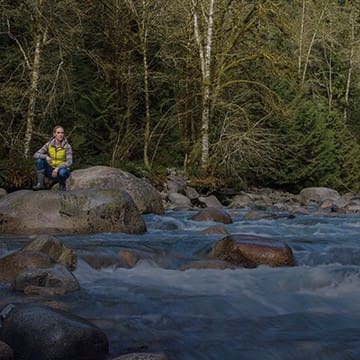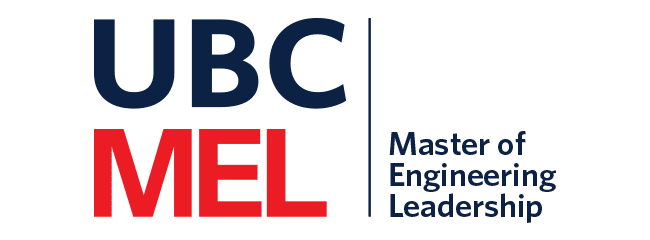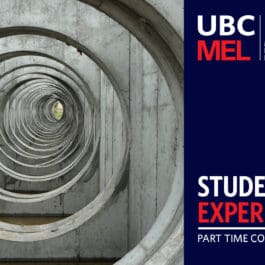
In Conversation with Barbara Lence – Improved Water Program
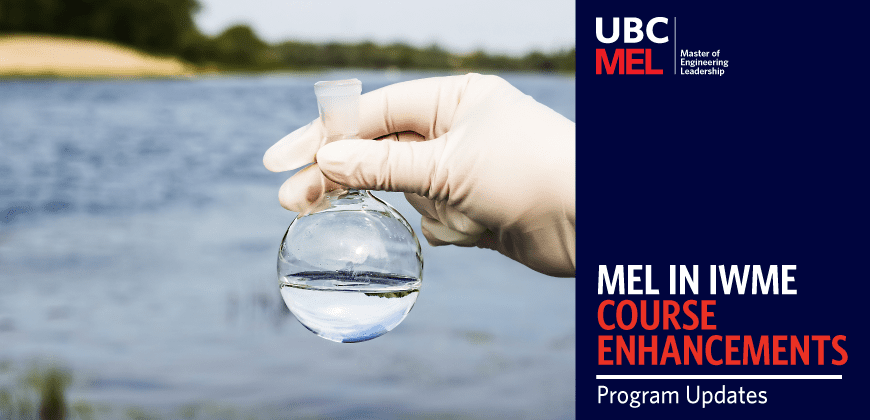
With a restructured curriculum, expanded learning outcomes, a new integrated course on water infrastructure project delivery, and strong connections to global leaders in the water industry, the Master of Engineering Leadership (MEL) in Integrated Water Management Engineering (IWME) offers an unsurpassed learning environment for professionals who want to make significant contributions to water management.
What prompted the decision to restructure and update the IWME curriculum?
We launched this unique program in 2016 as a way for water industry professionals to expand their technical knowledge of water management while gaining fundamental business skills. Courses are taught by leading water experts from the Faculty of Applied Sciences and by business experts from UBC Sauder’s Robert H. Lee Graduate School.
In late 2019, we decided it was time to embark on a deliberate process of renewal by consulting with students, alumni, faculty and industry to identify ways to strengthen our program and ensure it remains as relevant as possible for both students and the employers who will hire them.
What did you hear from industry?
We asked our industry advisory council – made up of water management leaders from the private and public sectors – where they see growth happening in the water industry and where they are challenged to find staff.
They told us that they struggle to find employees who can implement big projects – professionals who have the technical, business, financial and project management skills to deliver on large-scale infrastructure projects in water treatment and delivery.
They’re looking for people who understand economic and financial considerations in water management, and who are also able to consider the environmental and social equity aspects of water projects, including the ability to collaborate with Indigenous partners and communities.
Our program was already set up to help students develop these skills, but we realized we could make some changes to expand our learning outcomes and create stronger connections between courses.
How have you changed the program?
Starting this year, in 2021, we shifted the sequence of some courses to improve the learning flow. We want to ensure our students have a solid grounding in certain topics before diving into the more technical classes, such as one on chemical treatment processes.
The curriculum covers the whole supply chain of water quality and delivery, including source water and hydrology; water quality, use, distribution and treatment; waste stream management; and drainage. Our review identified areas where we needed to add content, such as on the social costs and benefits, circular economy, simulation and planning scenarios, and decision-analysis tools. And of course, as I mentioned earlier, we wanted to add in more opportunities for students to develop and practice the skills needed to deliver large-scale water infrastructure projects.
We’re addressing this last one through a new course, Water Infrastructure Project Delivery, that will integrate technical and business questions within the context of specific projects.
Tell us about this new course.
I’m not exaggerating when I say that this course will change our students’ lives.
We’re developing it as an integrative experience that brings together the technical, business and financial skills they’ll need to excel in this industry.
The course will be taught by Dr. Cheryl Nelms, who is currently the general manager of project delivery with Metro Vancouver, overseeing a five-year capital plan of more than $6 billion in infrastructure projects, including many large water infrastructure projects.
The course will review case studies, and industry leaders will be invited to attend classes for in-depth discussions with students on aspects of water infrastructure project delivery from policy and planning to implementation.
Topics to be covered include scheduling, cost, scope, impacts, performance and risk management, Indigenous partnerships and innovative project financing and delivery approaches. Cheryl will also bring in industry sponsors who will lead groups of students in solving a specific project implementation problem.
How are you strengthening connections to industry?
Industry connections are an essential part of our program.
Beginning in 2022, we hope to partner with industry and funding organizations, such as Mitacs to offer internships that would enable our students to work with an industry partner on a part-time basis over the course of their degree.
I’m reaching out to my colleagues in industry to get them thinking about the types of projects where they could use the insight of our students. Internships are a great learning opportunity for students, enabling them to make valuable contributions to an organization while expanding their skills and growing their network.
We’re very committed to the professional development of our students to help them build their networks and consider potential career pathways.
One way we’re doing this is through a very robust workshop and seminar series. Industry leaders share information in advance about projects they’re currently working on and then come in to talk with our students, making it a true discussion and learning experience for both parties.
We’ve had many amazing people come in to engage with our students, including leaders in water treatment and wastewater projects, entrepreneurs from start-up companies, experts in climate adaptation strategies, members of the Royal Society of Canada, a winner of the Wolf Prize in Agriculture, BC’s Minister of Environment and Climate Change Strategy, the director of water resources for Brazil, and a Technical Secretary of International Coordination for a major NGO in Europe. In addition to being important networking opportunities, these workshops and seminars show students the incredible range of opportunities available in this field.
Anything else you’d like to share?
The students in this program are the most interesting and inspiring students I’ve ever met, in terms of their focus, their drive and their desire to learn!
Our graduates have gone on to do so many interesting things and make significant impacts in their organizations. I’m very excited about the changes we’re implementing to make a great program even better.
Integrated Water Management
Apply your technical and leadership skills in developing sustainable water management solutions.
Read MoreApplication Deadlines
The online application portal for the January 2025 has closed.
Get ready to apply!
Admissions for the 2026 intake will open on January 1, 2025.
How to ApplyAssess your Eligibility
Determine if your professional experience and academic background make you a fit for your desired program.
Start AssessmentJoin us for an
Info Session
Sign up for our latest online information sessions and discover what our programs have to offer.
Sign Up NowFeatured Faculty and Staff

DR. BARBARA LENCE
Featured Alumni
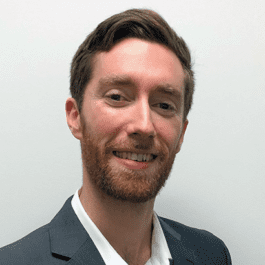
Sean Mercer
Sean Mercer used the MEL in Integrated Water Management to enhance his professional knowledge, gain fundamental business skills and expand his career opportunities.
